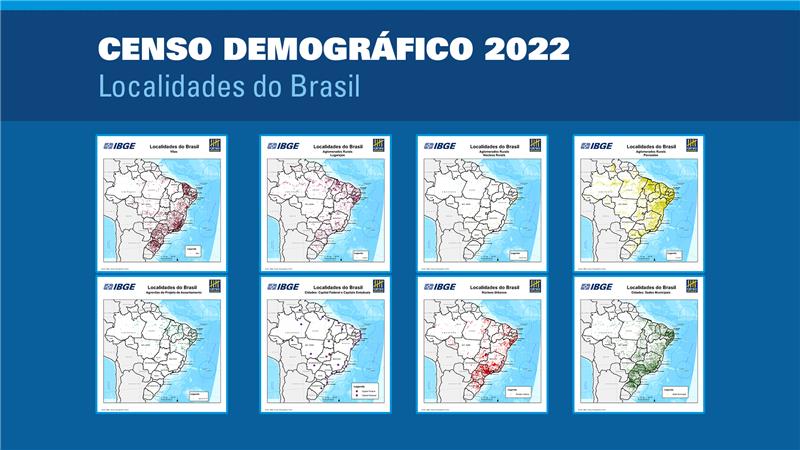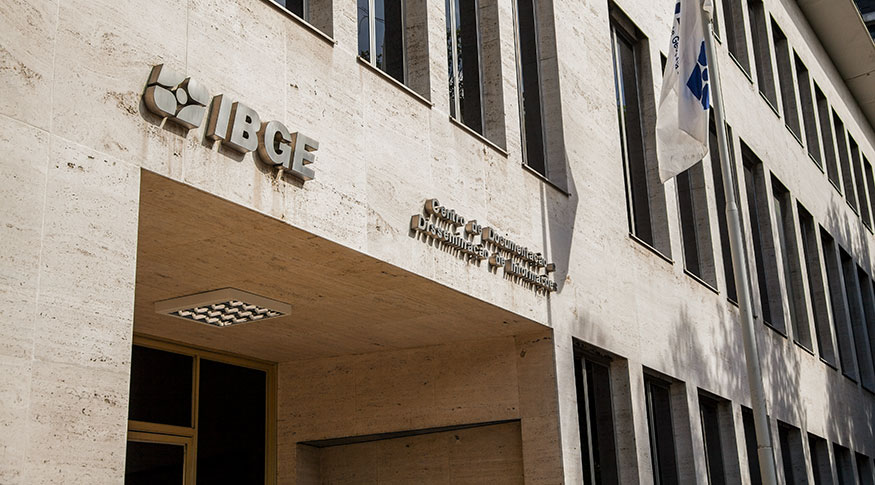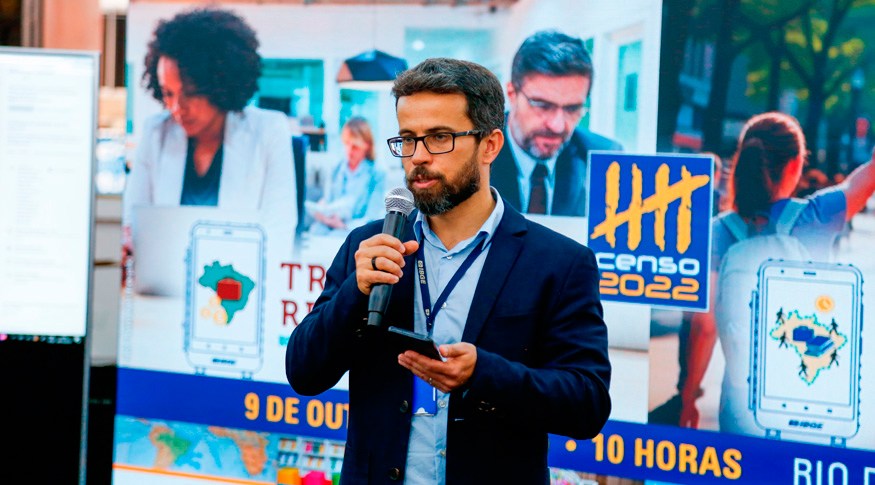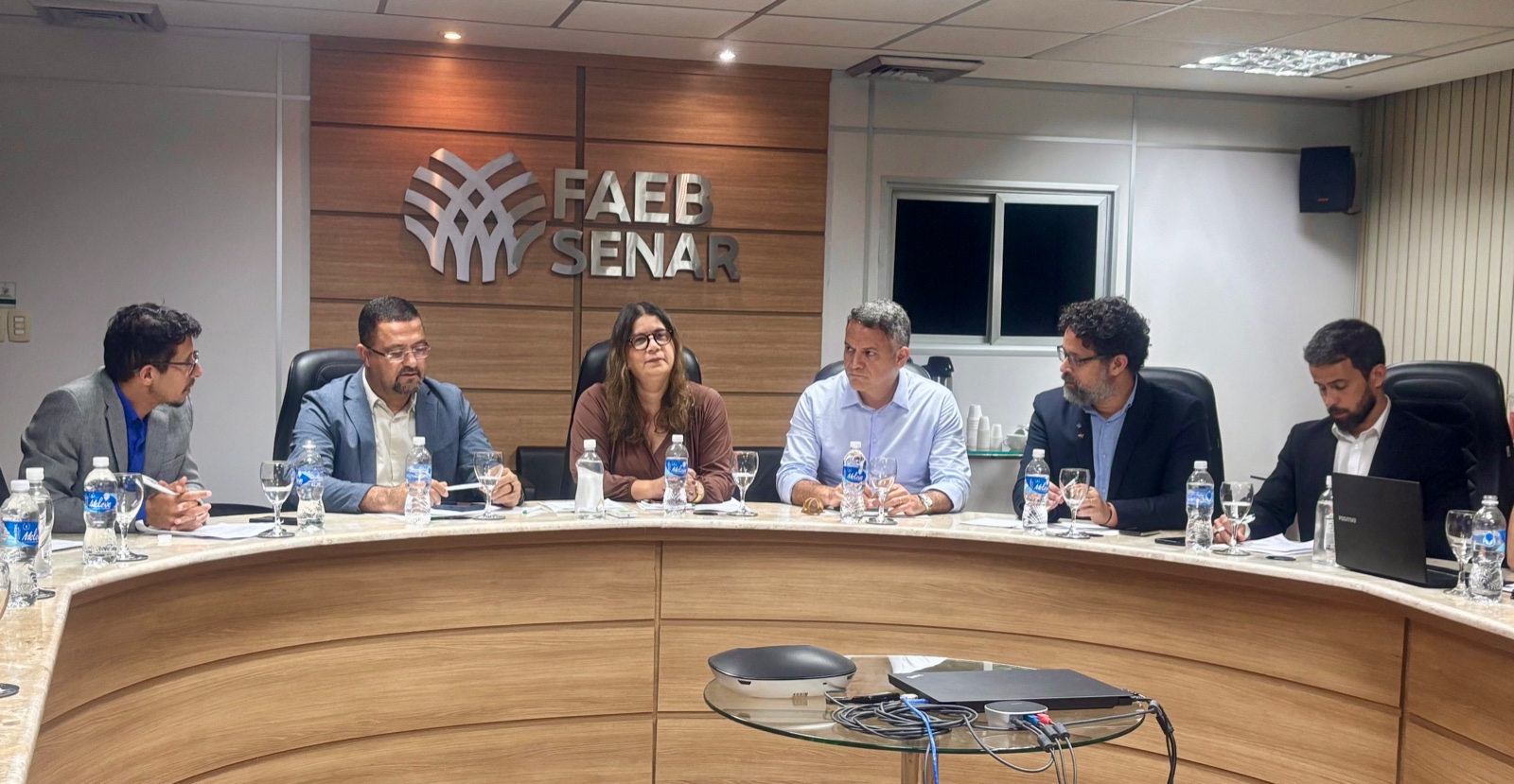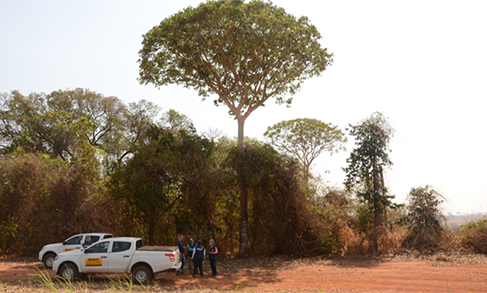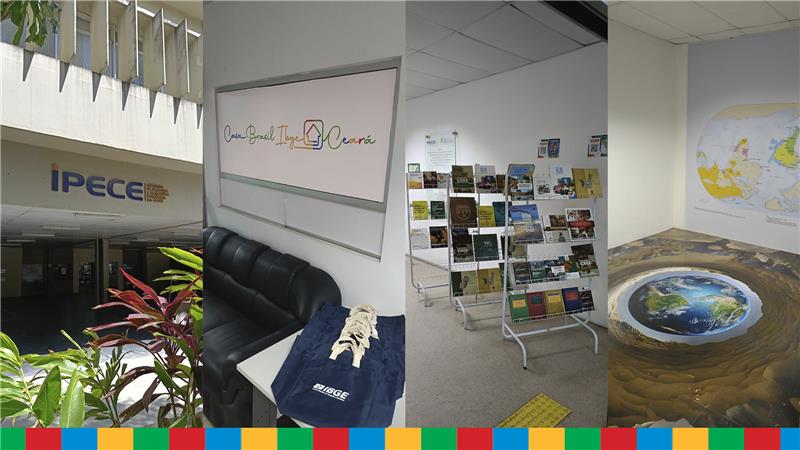Note on IBGE's and Brazil's data sovereignty
October 14, 2024 07h30 PM | Last Updated: October 15, 2024 03h32 PM
1 – Opportunities and risks of the Digital Era
The current management of the IBGE has established the most intensive dialogue in the history of the agency. But the topics of this debate go far beyond the IBGE.
In discussing the risks and opportunities of the Digital Era, the IBGE brought together, over five days, more than 140 speakers, 350 representatives of technical agencies and entities and society, 100 hours of recorded debates, six roundtables and 23 working groups, with the participation of 600 technicians and three thousand registered participants, in addition to 5 thousand participants, both in person and remotely, with the online transmission of the roundtables through IBGE Digital (ibge.gov.br).
Held at UERJ (July 29 to August 2), the National Conference of Data Producers and Users presented as a result a proposal for the collective construction of the National System of Geosciences, Statistics and Data (SINGED), summarized in the "Letter of Brazil in the Digital Era", which has nearly 40 thousand signatures of support from Brazil and abroad.
2 – Reorganizing the public-private relations inside the IBGE
The "Letter of Brazil in the Digital Era (https://www.change.org/p/apoie-a-carta-brasil-na-era-digital)" brings reflections that are necessary for the in-depth debate on the relations between the public and private sectors in the Brazilian State, and at the IBGE. The highlights are:
“The Conference met the IBGE’s objective of discussing the context of change from the Industrial Era to the Digital Era, in which Communication becomes present across all chains and sectors, forming companies larger than countries and with an impact on the sovereignty of nations, without, however, having a commitment towards the confidentiality of personal information and commercial transactions.”
In Brazil, the presence of big techs in knowledge production and dissemination agencies has been growing. For the IBGE, a survey agency and the largest producer of official data in the country, it is worth noting that the public-private relationship has always existed, but what is currently a concern is the national issue of data sovereignty as the Institute is faced with the progressive presence of external consultancies necessary for the statistical and geoscience production chain.
When taking as a reference the set of active IBGE civil servants, it is clear, for example, that the sum of the positions in the final area, such as management, state superintendents, coordinators and managers, reaches a set of 369 professionals. Along with this group of IBGE civil servants, 501 consultants were hired, who have costed R$35 million in payments between 2022 and 2024 alone. In addition to these consultants, there are 884 outsourced employees for general activities that also absorb a significant portion of IBGE's own resources.
There are several contracts with companies, private foundations, and national and international organizations that charge management fees paid by the IBGE. The dispersed and decentralized management in several institutions outside IBGE has also hindered its organic integration into Strategic Planning, the Annual Work Plan, and the institutional mission itself.
Added to this reality is the fact that the essence of technological security is compromised by the growing expenditure of the IBGE with the acquisition, leasing and maintenance of hardware and software, most of which are proprietary, at a cost of R$16 million in 2024 alone. With the risks of technological delay and external dependence, the Institute is succumbing to a significant portion of the development of computer systems and technical support for survey activities carried out through the hiring of a group of more than six dozen consultants corresponding to the budgetary allocation of R$8 million, in 2024 alone. It is also worth noting that a significant part of this technological infrastructure is not installed in a public building, consuming significant budgetary resources with the payment of rents.
This external network of contracted suppliers is a pathway to surveys and indicators, methodologies, among other sensitive information to the security of geospatial information and the nation's official statistical production. As they are sovereign national assets and of inestimable value for the production and evaluation of public policies, there is deep concern about the increased risk of compromising the full application of the principle of protection of statistical confidentiality (Law No. 5,534 of November 14, 1968), as well as the attributions defined by the Federal Constitution (Article 21, Clause 5).
3 – Appropriation and distribution of public funds
The sovereign management of public resources at IBGE presupposes the repositioning of budget and its expenditure in view of the current fiscal difficulties. This limitation results in the expenditure of more than 90% of the Institute's budgetary resources to the compensation and benefits of active and retired civil servants. In view of this scenario, the possibilities of meeting the growing society demands to the IBGE with quality and technical consistency, especially in the Digital Era, require the reorganization of public-private relations at the Institute.
There lies the importance of institutional innovation brought about by the creation of the Foundation for Support of Scientific and Technological Innovation of the Brazilian Institute of Geography and Statistics – IBGE+, supported by broad and undeniable legal instruments, as recognized by the competent bodies of the Republic. As a public foundation under private law with statutory exclusivity in supporting the institutional mission of the IBGE, its objective provides additional budgetary options and alternatives for the updating, innovation and technological advancement of the Institute.
Furthermore, the Foundation will allow the IBGE to have a short, medium and long-term innovation policy that is feasible given its strategic importance for Brazil, with its administration formed by IBGE staff, as well as the appointment of the Board of Directors and Trustees. It also has a representative elected by the civil servants in accordance with the Statute, which establishes subordination to the IBGE Board of Directors, which also holds the power of veto. Nothing that could compromise the IBGE in the exercise of its institutional mission will be permitted by this legal security.
It is also important to pass on the correct information about the IBGE+ Foundation, as already published in note (https://agenciadenoticias.ibge.gov.br/agencia-noticias/2012-agencia-de-noticias/noticias/41372-comunicado-da-presidencia-do-ibge-nota-detalhada), which highlights:
"
As an alternative, we tried to promote the recognition of IBGE as an Institute of Science and Technology (ICT), granted by the Ministry of Science and Technology. Such recognition was ratified by the IBGE Attorney's Office and, subsequently, by the Federal Attorney General's Office. As an ICT, the Institute has the legal obligation of establishing a Technological Innovation Center and an Innovation Policy, operated by a support foundation.
Considering the unique character of the IBGE in Brazil, the Federal Attorney's Office linked to the Institute, in an unprecedented, competent and unparalleled work, sought to create a public foundation under private law subordinated to the Institute and mirroring its structure, so that the IBGE can receive additional resources for research and technological innovation that are not subject to mandatory federal budget restrictions. The IBGE + Foundation will allow the receiving of resources to support surveys or projects developed with ministries, public banks and local authorities, which would be impossible due to dependence on the “budget”, and that can be operated through this support foundation. In these services, the resources obtained from the IBGE + Foundation will be retained and compulsorily transferred to the Institute.
It is also important to highlight that the IBGE + Foundation obtained approval from all necessary control bodies and will be inspected by the Federal Court of Audit, as can be seen in the two files (Annex 1 and Annex 2) that provide the procedural history and minutes of creation that include the Foundation Statute. It is worth of notice that the foundation will have the presence of internal and external committees focused on developing IBGE's innovation policy and expanding its Work Plan in accordance with the Code of Good Practice for Statistics."
And on this date, the IBGE + Foundation inaugurates an exclusive website, with its current administrative structure and set of documents (all available on the IBGE Intranet and website).
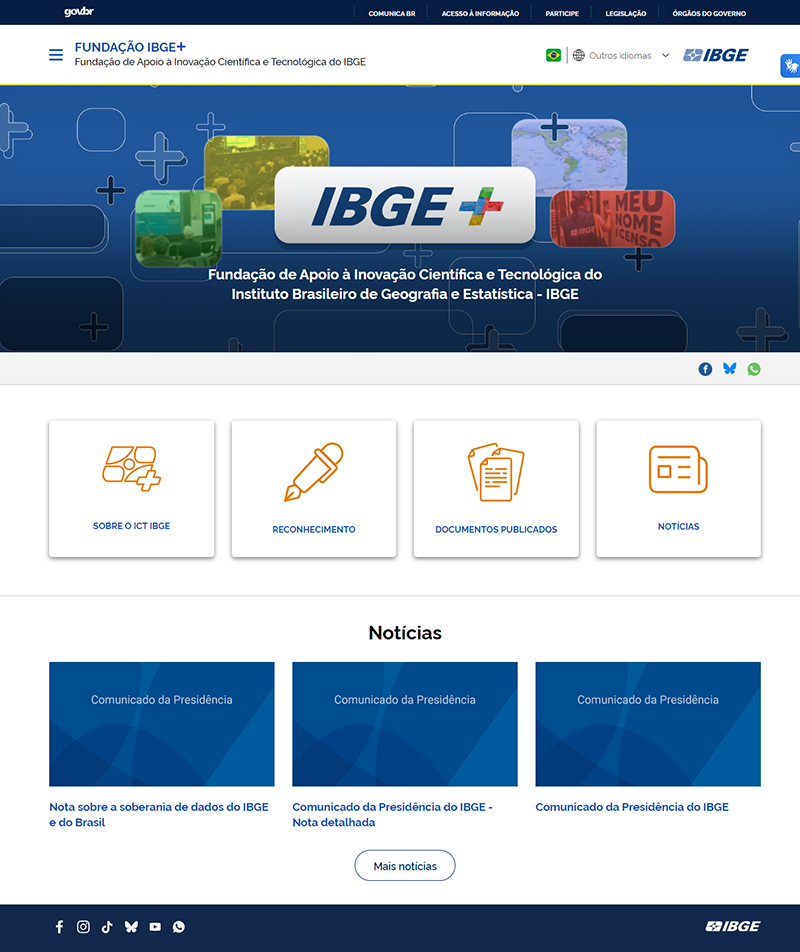
4 – Brazil needs more IBGE
Playing a leading role in its time, in almost 90 years of existence, the IBGE is back in the national and international debate as key in the new governance and security of data, geosciences and official statistics in the Digital Era.
This organizational leap and national protagonism require more unprecedented surveys and new indicators. Likewise, the expansion of the permanent staff, improvements in infrastructure and working conditions that contemplate the establishment of a true State career for the IBGE. With more resources available and the permanent updating of its technological structure, all staff can better operate in Brazil in a full or partial on-site work regime.
This administration has accepted this challenge since its inauguration and knows the importance of these choices for Brazil. It will continue this process in a democratic, transparent and participatory way, even in the face of individualistic and sectarian desires, as it is supported by the sustained search for collective opportunities and the republican defense of IBGE's institutional mission.
Annex 1 - Minutes of Founding, Bylaws Approval and Election of Executive Director












